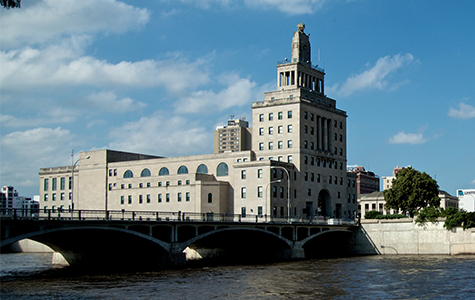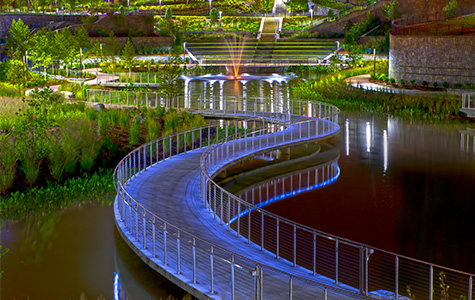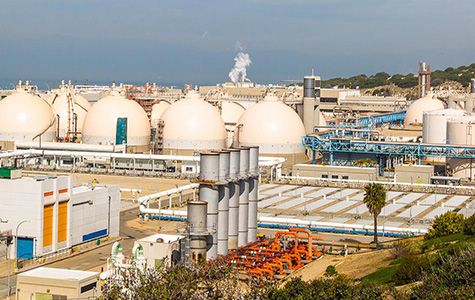Impacts
Clean water utilities don’t just treat wastewater, they improve our lives and transform communities by improving their social, economic, and environmental health.
Environmental
Clean water enables the natural environment to thrive. Above all else, the environment is where our sector’s impact is the greatest. Clean water utilities work hard to minimize, and in some cases almost fully eliminate, excess nutrients and bacteria from reaching waterways. They accomplish this with significant investments in stormwater collection systems and by separating stormwater and wastewater collection systems and using natural vegetation to keep water out of the collection systems in the first place. For example, Seattle, Washington’s progressive “Green Stormwater Infrastructure” to control its combined system has enabled the city to cut pollution to Seattle’s waterways by 75%.
Seattle, Washington’s progressive “Green Stormwater Infrastructure” to control its combined system has enabled the city to cut pollution to Seattle’s waterways by 75%.
But preventing pollutants from entering waterways to enable plants and animals to thrive is only part of the environmental benefit from public clean water agencies. Another major element is the important impact they have on clean energy generation and the removal of greenhouse gases from the atmosphere. When wastewater is treated, the solids that are removed can be burned to generate heat and power or further processed into natural gas. For example, Alexandria Renew Enterprises (AlexRenew), the agency that services the historic city of Alexandria, Virginia, has been capturing and reusing its biogas for heat for more than 12 years, and, as a result, it has realized a 25% reduction in greenhouse gases since 2005.

Narragansett Bay is cleaner than it has been in 150 years due to wastewater plant upgrades.
AlexRenew is not alone. More than 1,200 clean water utilities in the U.S. currently produce biogas. Many treatment works are powering their own systems from this energy, enabling them to go off the grid. Others are able to fuel local bus fleets. All of these efforts reduce a community’s reliance on fossil fuels for energy, which reduces their greenhouse gas emissions. If all clean water facilities generated energy from their biogas, we could power a city the size of San Diego. The potential is great, and NACWA continues its important work to expand the sector’s efforts in this space.
Tell Your Story
The success of clean water agencies depends on everyone sharing their own stories of success. We'd love to help you tell your story!
Find Out More

